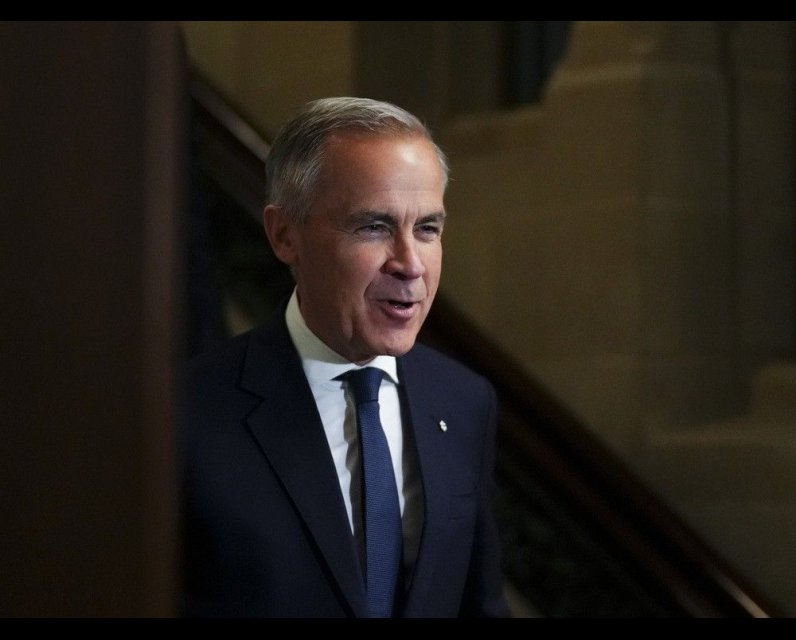Source Feed: National Post
Author: Catherine Lévesque
Publication Date: May 28, 2025 - 15:56
Mark Carney pressed on lack of spring budget in first question period as prime minister
May 28, 2025

OTTAWA — Prime Minister Mark Carney was pressed on his government’s decision to punt the budget until the fall and his promise to make Canada an “energy superpower” during his first question period on Wednesday.
Interim Conservative Leader Andrew Scheer started by welcoming Carney to his first official question period and reminded him “this is where we provide rigorous scrutiny on every word he says and every dollar he spends on behalf of Canadians.”
“Now, let’s talk about those words and dollars,” he said.
Scheer went on to enumerate how he believes Canadians are still suffering from the consequences of Liberal policies — pointing to increased household debt and food bank usage — and asked how a man who promised to act at “great speed” won’t table a budget right away.
Finance Minister François-Philippe Champagne said two weeks ago there would be
no federal budget in the spring
, but a fall economic statement instead. Days later, Carney announced his government would present a budget during the fall session instead.
“If he’s the man with the plan and the guy you hire in a crisis, why won’t he table a budget before he goes on summer vacation?” Scheer asked.
Carney shot back by saying that Scheer was probably “very busy” and “did not have a chance to study closely the 100-day plan” of Conservative Leader Pierre Poilievre which made no mention of tabling a budget in that timeframe.
“They must be really afraid to come clean with Canadians if they’re going to punt it off into the fall,” retorted Scheer.
Scheer went on to question Carney on his “claim that somehow the Liberals have changed” and said he had “a chance to prove it to Canadians.” “If he’s serious, will he tell Canadians that pipelines are part of his values by repealing Bill C-69?”
Ottawa’s impact assessment act, also dubbed the “no pipelines bill” by its critics, came into force in 2019 and has been a hot-button issue ever since.
Carney insisted that his “new government” would act immediately to grow the economy, support “nation-building projects” and work with provinces to build them.
The Conservative opposition went on to question many of his ministers on pipelines and housing — with a particular focus on rookie ministers Tim Hodgson and Gregor Robertson.
The prime minister’s office confirmed earlier this week that Carney would not be pursuing his predecessor Justin Trudeau’s tradition of answering all questions put to the government by the opposition in the House of Commons every Wednesday.
His office said he would only be answering questions in the opening round of questions, as he did on Wednesday.
Trudeau started the tradition of the “prime minister’s question period” — a common practice in the United Kingdom — in 2017 to improve accountability within the chamber. It was a way for all parties to take turns questioning directly the prime minister.
Despite being a fan of British traditions, Carney promised a “true cabinet government” with ministers “expected and empowered to show leadership” on their files.
Conservative MP Gérard Deltell said he did not mind Carney breaking tradition with Trudeau on the prime minister’s question period and favours substance over form.
“It’s not the number of answers that you give, it’s the kind of answers that you give that is most important,” Deltell told reporters as he headed to his weekly caucus on Wednesday morning. “If there are some clear responses, that will be interesting. We will see.”
Deltell added that Carney has had some “difficulties with the truth” — pointing to comments hinting that U.S. President Donald Trump had not raised the “51st state” in their first call. It turns out that
Trump did, admitted Carney during the campaign
.
Liberal MPs said prior to the first question period of the spring session that they were hoping for more decorum and less heckling from the opposition benches.
“Let’s hope for some collegiality, let’s hope for some demonstration that we are all in this together and we are all working for Canadians,” said Karina Gould, who served as government House leader in the last Parliament.
“I would like to see the Conservatives start with an attempt at cooperation. We certainly had a very rocky end to the last Parliament,” she said.
James Maloney, who was recently chosen as the Liberals’ caucus chair, said he was “curious” to see if the tone in the chamber will be different or more of the same.
“I would like to see more respect for Parliament, I’d like to see more respect for the members in the House, and I’d like to see that people have a sense of renewal because we just had an election. We’ve got a new government,” he said.
“We’ve got a lot to do and I’d like to see people get out to work.”
Poilievre, who was speaking outside of the chamber because he is not an MP, announced before question period his party would support the government’s initiative to implement a middle-class tax cut, cut the GST on new homes and scrap the consumer carbon tax.
“As I said a few weeks ago, I’m encouraging the Liberals to steal my ideas, because we have the best ideas,” he said.
“We’re here for the right reasons — not for our egos. It’s to get things done, to make people’s lives better,” he added.
Poilievre hinted it is with a little twinge of sorrow that he will be watching his party hold the government accountable, from the sidelines, for the first time in more than two decades.
“I’d love to be in there. It’s a great place,” he said.
Poilievre said he would “work hard” to earn the opportunity to sit in the House again. A byelection in a rural Alberta riding is expected to be called as soon as the Conservative MP steps down, which means that the Conservative leader will likely be back in his seat in the fall.
National Post
calevesque@postmedia.com
Get more deep-dive National Post political coverage and analysis in your inbox with the Political Hack newsletter, where Ottawa bureau chief Stuart Thomson and political analyst Tasha Kheiriddin get at what’s really going on behind the scenes on Parliament Hill every Wednesday and Friday, exclusively for subscribers. Sign up here.
Our website is the place for the latest breaking news, exclusive scoops, longreads and provocative commentary. Please bookmark nationalpost.com and sign up for our newsletters here.
The Toronto District School Board has been stopped from erasing the names of Sir John A. Macdonald, Egerton Ryerson and Henry Dundas from its schools.
The new legislation, introduced by Ontario education minister, Paul Calandra, on May 29, will require a board to apply to the minister before changing the name of an existing school.
If a board began using a new name on Jan. 1, 2025 or afterward, the law would still enable the minister to require a board to apply for approval.
Then it will be open to the minister to approve or reject the new name.
The legislation...
May 30, 2025 - 17:49 | Stewart Lewis | National Post
Premier Doug Ford says he encouraged efforts to remove a wooden structure that, for five years, has hidden the statue of Sir John A. Macdonald on the Ontario Legislature’s front lawn, saying the province has to support Canada’s first prime minister and stop worrying about the past.The decision to reveal the statue, pushed by Progressive Conservative and Liberal members of a legislative committee earlier this week, has reignited debate about Macdonald’s tainted legacy at a time when the province is facing new tensions with First Nations.
May 30, 2025 - 17:48 | Laura Stone | The Globe and Mail
The province is currently in the process of passing Bill 5, Protect Ontario by Unleashing our Economy Act, legislation it introduced to speed up mining projects in the north.
May 30, 2025 - 17:47 | Isaac Callan | Global News - Ottawa



Comments
Be the first to comment